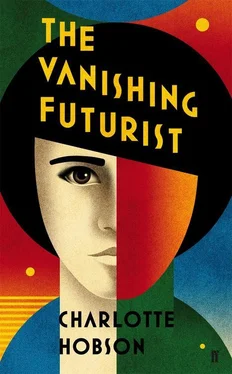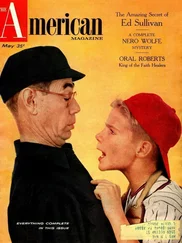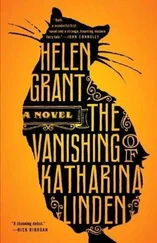All week I rehearse how I am going to open the conversation with Sophy. Paul wanted us to tell her everything years ago, but I persuaded him it would be too confusing, too painful. Now he’s gone, it is frankly a worse moment than ever to begin, but I have no choice. ‘I’ll come back for you if you don’t,’ he whispered – still managing to joke, even at the end.
I find myself writing an account for her instead, using the papers as my starting point. This way, I think, will be more truthful – more complete – than if I stammer it out incoherently. Immediately I am amazed by how vividly the memories rush to my pen – voices, images, jokes. I remember my brother Edmund at Charing Cross station walking down the platform, waving goodbye to me and pretending to fall off the end. I remember Miss Clegg’s sonorous elocution as we crossed Europe, giving me advice on where to buy a winter coat for a good price, and how to avoid the multitude of unsuitable situations that Russia would present. ‘The Kobelevs are a respectable old Moscow family,’ she kept repeating, all the way across Europe. ‘You will encounter nothing untoward with them, I assure you!’
I can feel even now the tiny, rebellious frisson that rose up in me in response. I assure you , I thought, I’ll do my best to encounter untowardness. ‘Untoward!’ shall be my motto.
And in so far as such an aim can be judged, I think I was rather successful.
My charges – Liza, aged eleven, and Dima, aged nine – were dear, good, funny children, and clever, just as their father had said; Liza was a bookworm with an eye for the unsuitable books in her father’s library, and they both spoke three languages – Russian, English and French – with passable fluency. They were a little wild, perhaps: they could not sit up at the dinner table without arguing, shouting, and dropping food on the tablecloth. They rarely took exercise, instead romping about indoors, breaking precious objects in Mr Kobelev’s collection. At lesson times I soon discovered where they would be hiding: in the kitchen, where the cook Darya fed them strawberry jam by the spoonful and commiserated with them at their bad luck in having to be educated at all.
‘Too much jam is bad for them,’ I told her in my broken Russian.
‘Ah, nothing can harm the innocent!’ came the airy reply, translated for me by Liza in a butter-wouldn’t-melt voice.
They had had a succession of governesses, and neither their father nor anyone else would say no to them; they were universally pitied, by servants and family alike.
‘We’re poor, neglected children,’ Dima would say with a serene look.
‘Yes, tragic children,’ Liza chimed in. ‘Growing up without a mother’s love!’
During my first week I devised a routine: lessons in the morning, a walk in the afternoon and an evening period for reading and learning poetry. The lessons passed off adequately, when I could persuade them to sit down and concentrate, but the real success was the afternoon walk, without which I suspect I would have soon gone the way of their previous governesses. My governess acquaintances at the Anglican church in Moscow, St Andrew’s, where I spent my Sundays, were disapproving of the idea.
‘I do not advise it, Miss Freely,’ Miss Clegg warned me. ‘Besides the dirt, it is quite dangerous, you know. The Russian people are an unpredictable lot. Take the children out for a drive, by all means, and a walk in the park, but on foot – no. You’re not in Truro now!’
Dirty the streets often were, particularly in spring and autumn, but I had always loved walking, and saw no reason to stop in Moscow. Most Russian children, it seemed to me, were brought up in an absurdly cosseted atmosphere, ignorant of the world outside their immediate household. Talking to the servants was disapproved of, even in liberal households such as the Kobelevs’, and even when they had little playmates among the servants’ children, they were allowed to lord it over them in an unattractive way. As long as I was their teacher, I was determined that Liza and Dima would have a very different education.
Their nurse, Nyanya, who was against any kind of change, was horrified. ‘Oh, she’s a cruel one,’ she wailed, ‘dragging the poor little crumbs out around the city! They’ll come home like stones, they will, it’s their poor kidneys that will suffer!’
The children themselves rebutted her. ‘Oh Nyanya,’ they cried impatiently, ‘don’t fuss! It’s warm outside! We like going with Miss Gerty.’
It had not always been so. On one early outing both of them lay down on the pavement. Telling them that English children of their age could walk several miles without complaint did not, unfortunately, rouse them to patriotic competition. Several peasants stopped and watched, full of outraged sympathy for the little children so mistreated by the foreign Miss. At last I turned to one of them, a fine figure of a man with dramatic moustaches and beard.
‘Please, carry them,’ I stammered.
He berated me as he hoisted them up, one on each shoulder, and Liza translated his remarks with relish. ‘He’s saying you are vicious woman, and you have destroyed our dear little legs with too long walking.’
‘Tell him that your dear little legs still seem to work very well when you are playing on the slides.’
‘He says all foreigners are same – come to Russia to steal our national treasure.’
‘Oh, for goodness’ sake.’
We continued on our walk, Liza and Dima waving triumphantly as though they were at the head of a victory procession, and attracting the delighted attention of a crowd of street urchins. When the peasant set them down at Smolensk market, they skipped a good half-mile home without noticing.
Moscow is a city that insinuates itself cunningly into one’s affections. At first it fascinated and slightly repelled me, as some vast medieval fair might. I was still ignorant of politics, yet as a Chapel girl I couldn’t help but be shocked by the contrast between the golden domes and palaces and the crowds of beggars at their doors. The architecture, with its strange excrescences and decorations, struck me as a wild attempt at grandeur that understood nothing of the true properties of beauty. Yet slowly I came to know its little courtyards, its secret gardens and alleys, its cool green boulevards cast in relief against the bustle and noise. It was impossible not to be charmed by the wooden houses and the bandy streets, the little churches squeezed into every corner. There was a sort of unexpected joyfulness about it all, unlike any other city I have known.
Liza and Dima and I explored together, discovering the river with its busy traffic, the markets – the birds on Trubnoi Square and the flowers on Tsvetnoi Boulevard – and the grand new mansions decorated in the latest styles. Our trips often included a visit to the grocer Eliseyev’s to gaze at the displays and drink a glass of flavoured mineral water, which I allowed Dima to order.
‘Which syrup do you prefer, sir?’ the tremendously solemn, white-coated assistant would ask, using the polite ‘ Vy ’.
Dima would flush with pleasure. ‘Three lemon ones, please…’ And when the sparkling drink had gushed out of the silver siphon and the syrup was swirling in the glass, he might add, as one man to another, ‘I used to like the strawberry but I’ve grown out of it now.’
The streets were always busy; hawkers stood on street corners selling knitted goods and garden produce, brushes and brooms, newspapers – there was an extraordinary array of different publications – hot pies, ice-creams, chestnuts. An increasing number of motor vehicles weaved noisily between the elegant carriages and the trams. In response to Dima’s urgent requests, we often passed by one or other of the grand hotels, the Metropol or the National, in the hope of glimpsing a chauffeur, in leather goggles and hat, in the act of cranking up his motor car, swiftly mounting his seat and roaring away, to the accompaniment of several deafening explosions.
Читать дальше





![Майкл Муркок - Спящая волшебница / The Sleeping Sorceress [= Участь Белого Волка, Рыцарь Хаоса, The Vanishing Tower]](/books/327544/majkl-murkok-spyachaya-volshebnica-the-sleeping-sorc-thumb.webp)






